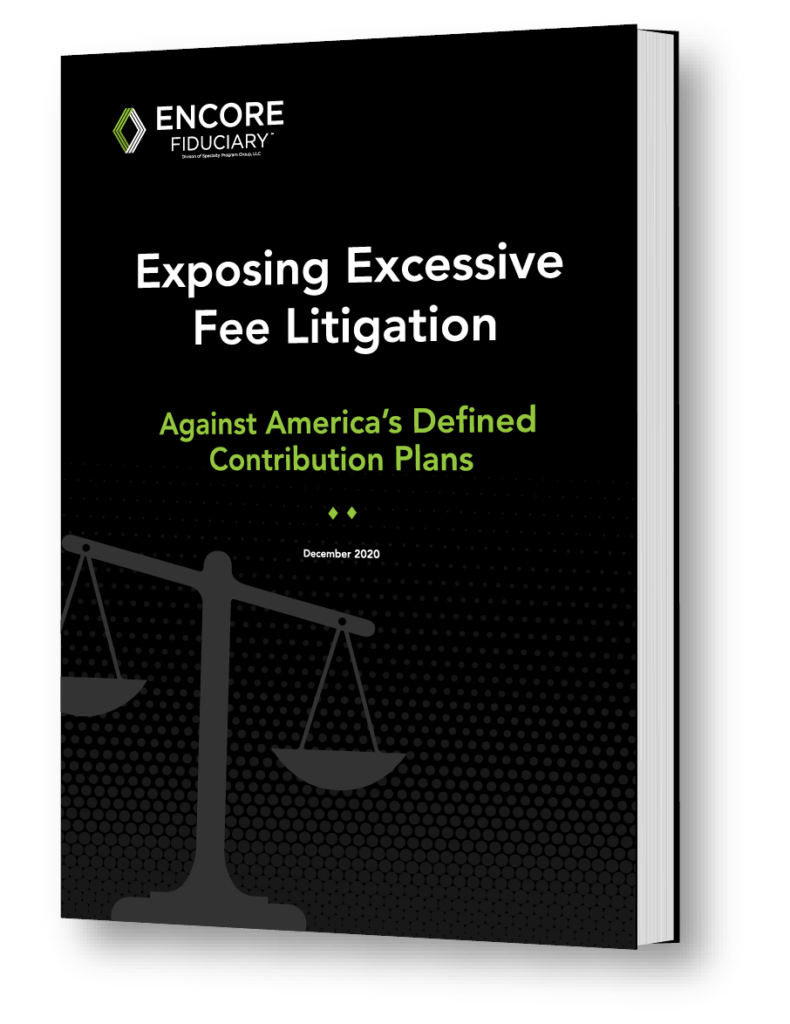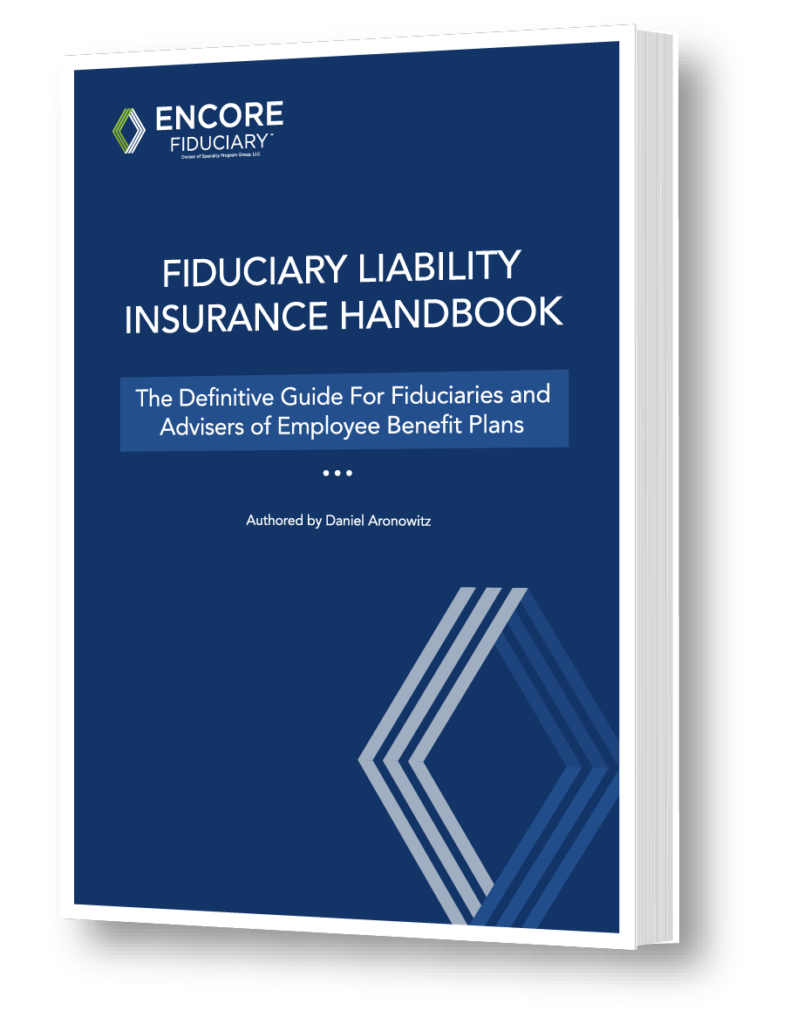The original model of an excessive fee lawsuit under ERISA was to allege that the plan fiduciary committee failed to conduct a request-for-proposal to ensure that the plan had the lowest possible costs. But plaintiff law firms are now challenging plans that negotiated low fees based on competitive bidding. They know it is worth the minimal cost to file a lawsuit, because if they can somehow get passed a motion to dismiss, they have settlement leverage based on large-plan damage models that are, in the words of a leading plaintiff firm, “astronomical.” The only protection for plan sponsors is the “careful, context scrutiny” that federal court judges are required to perform to protect plan fiduciaries. But once again, the federal court system has allowed a plaintiff law firm to second-guess the fiduciary process of a quality defined contribution plan.
Alleging a Deficient Recordkeeping Request for Proposal
In Kena Moore v. Humana, Inc., the prolific Capozzi Adler law firm filed a purported excessive fee lawsuit against the $5.35 billion Humana 401k plan. In the original complaint, plaintiffs estimated the recordkeeping fees – ignoring the plan participant disclosures that gave the true fee numbers – based on the form 5500 data at $59.01-$64.75, and alleged that leading consultant NEPC’s recordkeeping survey indicates that plans with over 15,000 participants have an average of $40 per participant in recordkeeping. As Euclid demonstrates in its recent whitepaper, the Form 5500 data is not an accurate recordkeeping total because it includes transaction costs and does not reflect any rebated fees to participants. The Form 5500 data is inflated and cannot be used to allege excessive recordkeeping fees. This case was no exception.
Based on our reading of the pleadings, the Humana plan fiduciaries took their fiduciary responsibilities seriously and conducted two separate requests for proposals to ensure that the recordkeeping fees were competitive. Plaintiffs were given full access to the results of the two RFPs that showed the plan conducted competitive bidding in 2014 (when the plan had 46,000 participants and $3.5b in assets) and negotiated recordkeeping fees of $37 per participant with Charles Schwab. And again in 2019, plan fiduciaries conducted another RFP and reduced recordkeeping fees to $23 per participant when the plan had almost 50,000 participants and over $5b in assets. In 2021, the recordkeeping fee increased to $28 per participant because Schwab added some low cost index funds that reduced the recordkeeping offset.
But after defendants presented plaintiffs with the correct recordkeeping fees that were much lower than the original $40 Capozzi benchmark, plaintiffs moved the goal posts – a common litigation tactic. Undeterred, Plaintiffs filed two successive amended complaints with lower purported benchmarks in the low “$20 range.” The court summarized the case as alleging that Defendants’ RFP “process was clearly deficient since it resulted in recordkeeping fees above industry averages for jumbo plans and amounts paid by similarly-situated plans.” Plaintiffs further alleged that “the RFP was deficient because ‘the Plan could have negotiated a lower [recordkeeping] price.’” But the only evidence supporting these allegations is not the industry average, but according to the court, “a chart comparing similarly situated plans, including a comparison of the number of participants, amount of assets, and recordkeeping fees paid. Each of the plans on the chart paid recordkeeping fees less than $37 per member.”
| Plan | Participants | Assets | Total TK Fee | RK Fee/PP |
| Deseret 401(k) Plan | 34,357 | $3,380,994,203 | $878,028 | $25 |
| Danaher Corporation & Subsidiaries Savings Plan | 35,357 | $4,565,702,706 | $988,267 | $28 |
| Publicis Benefits Connection 401(k) Plan | 42,316 | $2,547,763,175 | $1,167,408 | $28 |
| Kaiser Permanente Supplemental Savings Plan and Retirement Plan | 47,358 | $3,104,524,321 | $3,104,524,321 | $27 |
Based on this chart of four plans, the court held that the “[t]hese allegations are enough to survive a motion to dismiss because, if true, they could establish that the Committee failed to act as a prudent fiduciary.”
That is what the court ruled, but it does not make it right. The chart is not a representative industry sample of the actual fees paid by jumbo plans. It is just the purported fees of four plans. Plaintiffs first two complaints alleging a $40 benchmark should eliminate any credibility of their assertions, but the NEPC $40 benchmark is actually the real median amount that mega plans paid in 2018 – indeed, many plans paid more than that. Second, fees have come down 10-25% in the last five years, so any allegations of fees during that time period need to be adjusted. And third, as in all of these lawsuits, there is no explanation as to the type of recordkeeping services in these four plans compared to the Humana plan. There is no attempt at an apples-to-apples comparison. Instead, plaintiffs claim that the fact that Humana stayed with Schwab as the recordkeeper in 2016 is evidence of a “deficient” process in conducting the RFP.
The simple fact is that a $37 per participant recordkeeping fee in 2016 is very low. Just compare it to the allegations in the Northwestern case of $150-250+ per participant based on uncapped revenue sharing. We have reached a point of diminishing returns in “excessive” fee litigation.
The Euclid Perspective
The Humana plan fiduciaries did everything possible to ensure that the recordkeeping costs for their large plan were reasonable. They did two requests-for-proposal, which is two more than most plans. But they nevertheless have to spend millions of dollars to defend their sound fiduciary process based on the second-guessing of a plaintiff law firm whose business is to sue benefit plans and claim fiduciary malpractice. Having lost the motion to dismiss, Humana will now face pressure to settle for millions of dollars because the damage model, however counterfeit, is huge.
In the April 5, 2022 article from Bloomberg Law entitled Flood of 401(k) Fee Lawsuits Spur Wave of Early Plaintiff Wins, a plaintiff lawyer attributes their recent success “in part to doing significant research and financial analysis to ensure they have evidence for allegations that targeted plans are being mismanaged.” The argument is that they are winning more because they are only taking cases with really poor fees. The Humana case demonstrates that this is a laughable proposition. The original Humana complaint was filed alleging estimated recordkeeping fees based on inflated and inaccurate data, and measured against a $40 benchmark from the national NEPC recordkeeping survey. But the actual recordkeeping fees for the Humana plan were $23 to $37 – well below every credible benchmark. Plaintiffs did not research or conduct due diligence to find a new victim. Yet the court allowed plaintiffs to amend their complaint two different times – and each time the plaintiffs alleged a lower purported benchmark. In the end, the court allowed the case to proceed based on the flimsy basis that plaintiffs had found four large plans with supposedly lower recordkeeping fees. The plan committee followed the gold standard of best practices in comprehensive RFPS, yet the court is allowing former employees to challenge whether the RFP actually led to the lowest possible cost.
This is a shocking opinion, and issued by a conservative judge nominated by the last Republican President. The implications of this opinion are that following fiduciary best practices give you no protection from strike lawsuits. Every large plan fiduciary in America is guilty until proven innocent. Every plan is vulnerable to lawsuits that seek millions of dollars, and the only evidence required to allege fiduciary malpractice is to assert that a few other plans purportedly got a better deal. The current social environment does not value large corporations, but it takes millions of dollars to defend these lawsuits before a judicial system that has no knowledge or perspective as to what represents quality fiduciary process. This is not justice. At some point, corporations will realize that there is no value in providing their employees with a 401(k) plan, because the litigation risk is too high, and the system is unfair. We are not there yet, but it is only a matter of time.
Euclid will keep exposing implausible “excessive” fee cases until courts start protecting quality plan fiduciaries as Congress intended under ERISA fiduciary law.


